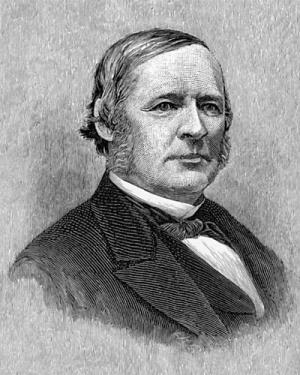
It seems that the Indiana General Assembly is considering a bill that would require the treasurer of state to designate one or more electronic gold currency payment providers to be a payment provider for the state and political subdivisions.  Further, it would then require  that all monetary transactions of the state or political subdivisions be conducted through electronic gold currency accounts.
Senate Bill 0453 was only introduced, by Senator Greg Walker (41st-R), Â on the 14th of January. Â It still has quite a bit to go through if and before it could become law. Â The bill’s synopsis reads:
Use of gold by the state and local government. Requires the treasurer of state to designate one or more electronic gold currency payment providers to be a payment provider for the state and political subdivisions. Requires the treasurer of state and fiscal officers of political subdivisions to: (1) maintain one or more electronic gold currency accounts with a designated electronic gold currency payment provider; and (2) conduct all monetary transactions of the state or political subdivisions through electronic gold currency accounts. Provides that an electronic gold currency payment provider must use an electronic gold currency unit that constitutes a monetary unit of account and represents a claim of title to and ownership of a specifically defined, fixed weight of gold held by an independent specie vault. Specifies that a specie exchange with which an electronic gold currency payment provider associates must conduct the business of exchanging gold and silver coin, legal tender of the United States, and the electronic gold currency of the electronic gold currency payment provider.
Provides that after December 31, 2009, the state and political subdivisions may not compel or require any person to recognize, receive, pay out, deliver, promise to pay, or otherwise use or employ anything but gold and silver coin (in that form or in the form of a designated electronic gold currency) as media of exchange with respect to certain payments. Provides that after December 31, 2009, a person receiving certain payments from the state or a political subdivision has the option of accepting payment in either legal tender of the United States or in electronic gold currency. Allows a person engaging in covered transactions to elect to receive or to pay a designated electronic gold currency instead of legal tender of the United States. Provides that if a person does not make a timely election, the medium of exchange for the transaction is legal tender of the United States. Specifies that if there is not sufficient gold in the state’s or a political subdivision’s accounts with electronic gold currency payment providers for the state or the political subdivision to make any payment in gold, the payment shall be made in legal tender of the United States.
With every bill, a Fiscal Impact Statement is included. Â In part, it reads:
The bill establishes for the state and political subdivisions a currency system based on a gold or silver standard to pay and receive funds. This “gold electronic currency” will run in parallel to the “U.S. legal tender system” currently in use, resulting in additional costs for redundant systems and conversion of currency. In addition, transaction and administrative costs for the gold electronic currency system may be higher due to the physical characteristics of the standard (storage costs) and the efficiency of the gold electronic currency payment marketplace. By establishing a gold electronic currency, the state and local units may avoid risk from collapse of the U.S. legal tender system. However, the gold electronic currency has certain near-term risks based on the efficiency of its marketplace that are not found in the U.S. legal tender system.
Photo from this website.